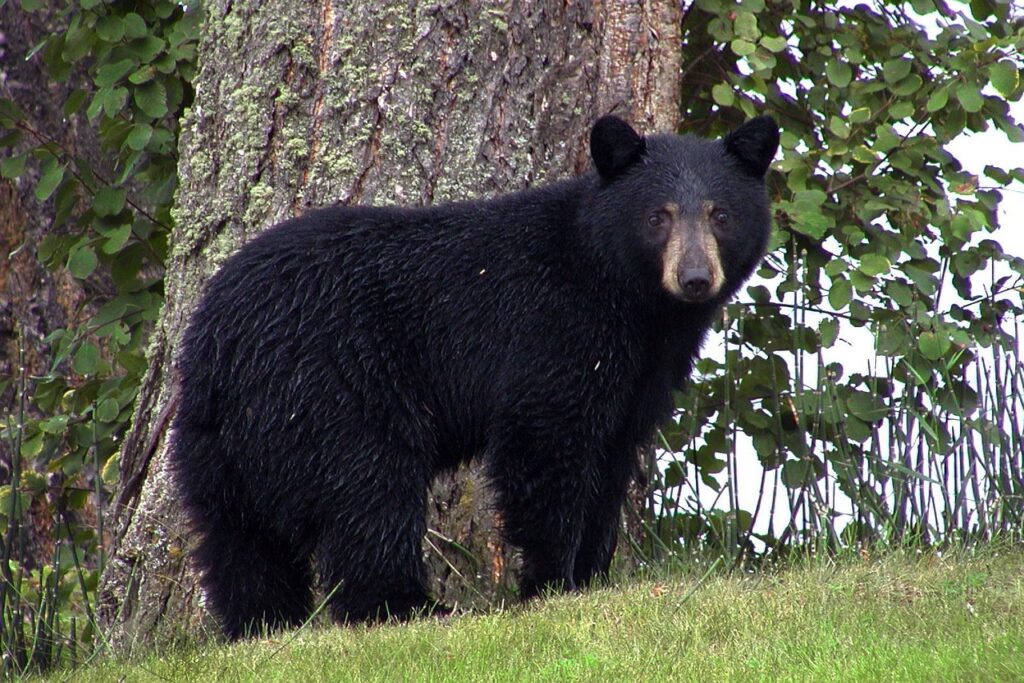
The bears are in the news again. Not the Chicago gridiron variety – Florida’s black bears.
In mid-May, residents in Tampa area neighborhoods reported finding black bears around their homes. This week, a black bear has taken up residence in a tree at Lake Eola in downtown Orlando, attracting all sorts of media attention.
Are Bears Common in Florida?
Florida may get the headlines for sharks, gators and the occasional manatee, but black bears are no strangers to the Sunshine State. According to the Florida Fish and Wildlife Conservation Commission, there are an estimated 4,000 black bears in the state. That’s a 53% increase in bears since 2015.
Central Florida has the state’s largest population of black bears at about 1,200. The Big Bend area of Florida has the fewest at about 30.
Related: What’s the Difference Between an Alligator and a Crocodile?
Although black bears in western states may have varied colors and shades, Florida black bears are indeed just black. They walk flat-footed with all five toes on the ground but are also able to run up to 35 miles per hour.
Florida black bears don’t weigh as much as their relatives up north. The average weight of an adult male is between 250 to 450 pounds and 125 to 250 for females.
Florida’s bears are considered omnivores, eating mostly plants but also insects and animals (usually small critters like possums). Because a bear is always looking for food, humans mostly encounter them near garbage, grills, pet dishes and bird feeders.
Are Florida Bears Dangerous?
Like the cartoon variety we grew up watching on Saturday morning cartoons, Florida bears are pretty smart. Yes, they will want your pic-a-nic basket if offered, just like Yogi Bear. But bears also usually shy and avoid contact with humans.
Related: Why Do Beachgoers Shuffle Their Feet in the Ocean?
Still, it’s important to know it’s food they’re always after. For that reason, it’s illegal to feed bears in Florida because it emboldens the bears’ behavior. Experts also recommend securing garbage cans in you live in a neighborhood where bears have been spotted. Also, keep your dogs on a short leash when walking them.
What To Do If You Encounter a Bear
If you come across a bear, experts recommend you find a safe area and then look to make sure the bear has an escape route. Assuming the bear isn’t a cub or isn’t injured, the best way to get rid of them is simply to scare the bear. Really.
Banging pots and pans is a convenient way to let bears know they’re not welcome. An air horn will do the trick too. Though using a paintball gun or slingshot is permitted by Florida law, it’s best to aim for the shoulder or rear of a bear to avoid permanent injury.
Bears frequently will climb a tree when scared. If you need assistance, please contact the nearest FWC regional office for assistance:
Northwest – Panama City: 850-265-3676
North Central – Lake City: 386-758-0525
Northeast – Ocala: 352-732-1225
Southwest – Lakeland: 863-648-3200
South – West Palm Beach: 561-625-5122





